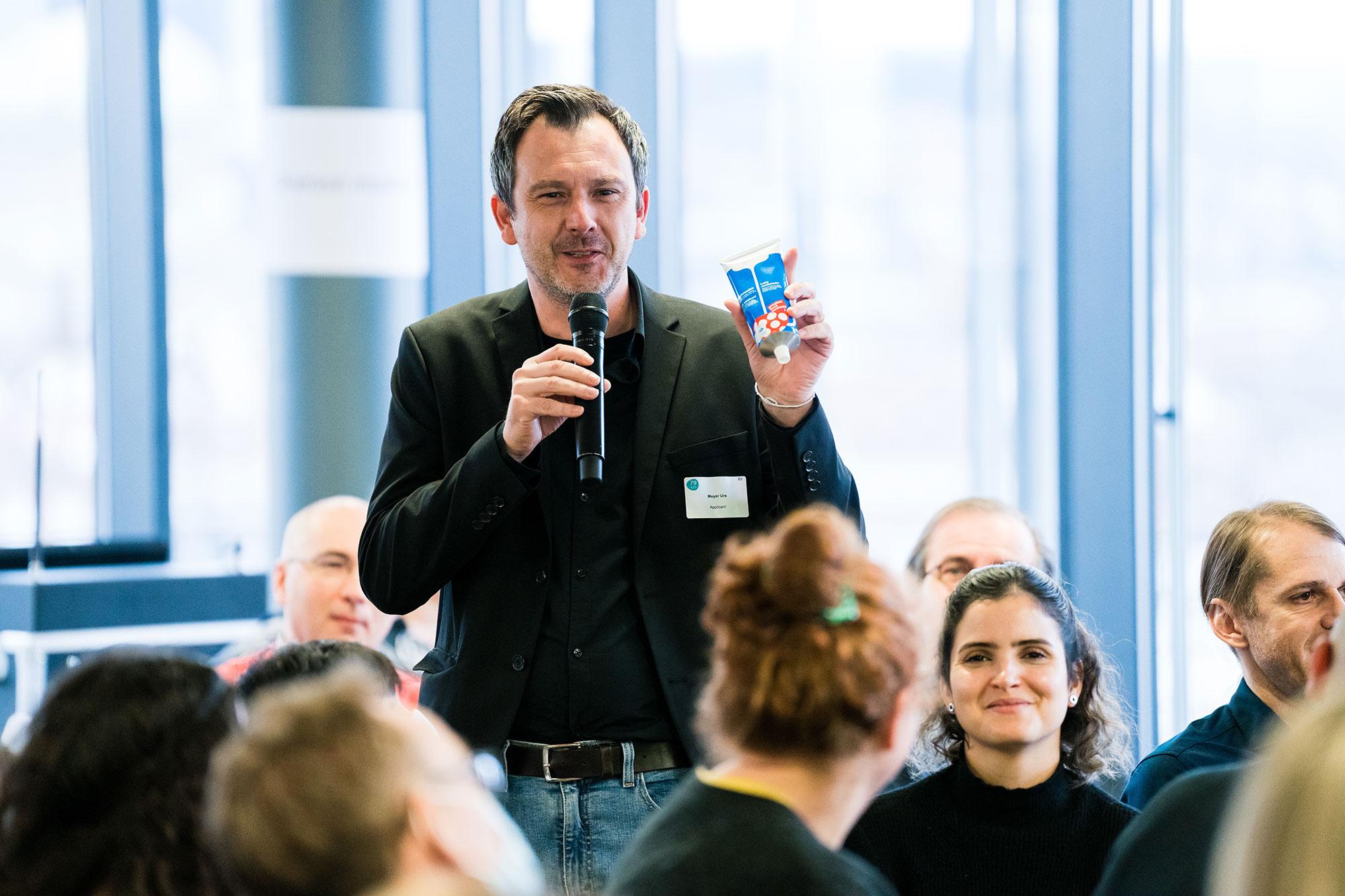(15) A stress-free method of administering medication

"Our project will have an immediate impact on the 3Rs,” Urs Meyer is convinced, “as it will be instrumental in reducing the stress experienced by rodents while improving research quality.”
Project description
Today, most medicines are taken orally, partly because this is a particularly straightforward method of administration (simpler than injection, for example). Accordingly, drug development often focuses on oral administration. This means that in animal studies, the drug substances have to be administered orally – a process that is usually carried out by what is known as oral gavage. This involves administering the drug substance with the help of a long tube that is usually inserted all the way into the stomach. Unfortunately, the procedure has certain disadvantages. Firstly, it increases stress for the animals and is therefore considered severity level 1 (light stress) or severity level 2 (medium stress) if it is used more than once. It can also damage the trachea or gastric tract and does not replicate the physiological process that would take place if the animals swallowed the agent voluntarily. Laboratory staff also often find the procedure stressful.
Alternatives are therefore urgently needed. In recent years, Urs Meyer's team at the University of Zurich has developed the MDA (micropipette-guided drug administration) method, under which rodents are trained to voluntarily ingest the drug substance (with the help of a sweet drinking solution) within three days. The rodents learn to drink the substance from the tip of a pipette. The method is non-invasive, stress-free for the animals, easy to learn and inexpensive. "Our MDA method is classed as severity level 0 even if used multiple times," explains Urs Meyer.
However, further analysis and validation is needed before the method can be widely adopted in laboratories (advantages and disadvantages compared to the standard method). This is being done within the framework of this NRP project, for example by testing the MDA method in different therapeutic areas, such as for the uptake of neurological or oncological agents.
"Our project will have an immediate impact on the 3Rs,” Meyer is convinced, “as it will be instrumental in reducing the stress experienced by rodents while improving research quality.”
Interested in the progress of this project?
You can find information about the scientific publications, events, collaborations, etc. carried out since the beginning of the research project here.
Original title
Minimising stress and harm for laboratory rodents in oral drug treatments using the micropipette-guided drug administration (MDA) method
